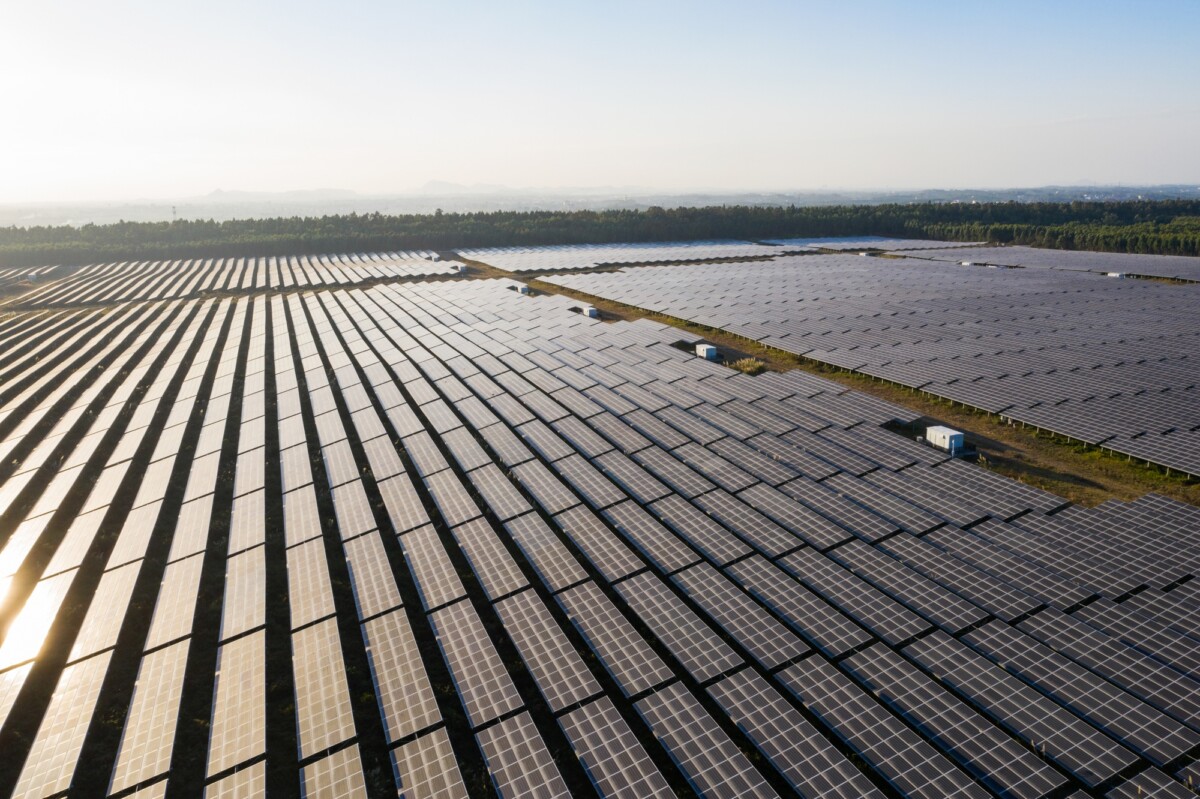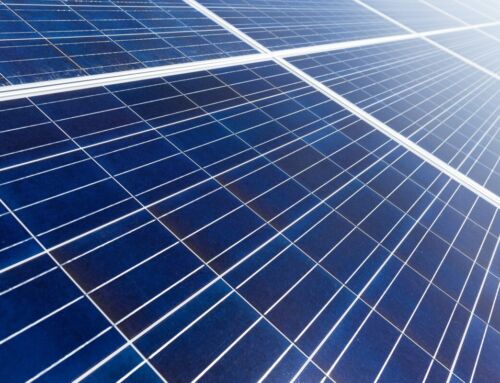Understanding the Basics: How Does Solar Energy Reduce Electricity Bills?
Imagine slashing your electricity bills while contributing to a greener planet. Sounds too good to be true? The problem many face is the rising cost of electricity, which can strain household budgets. But here’s the promise: solar energy can significantly reduce these costs, offering a sustainable and cost-effective solution. Solar energy reduces electricity bills by harnessing the power of the sun to generate electricity for your home. When you install solar panels, they convert sunlight into electricity, which can be used to power your home. This means you rely less on electricity from the grid, leading to lower utility bills.
Read Also: Solar Panels: Payback Time Explained
How Solar Panels Work
- Photovoltaic Cells: Solar panels are made up of photovoltaic cells that capture sunlight and convert it into direct current (DC) electricity.
- Inverter Conversion: An inverter then converts this DC electricity into alternating current (AC), which is used by most home appliances.
- Net Metering: Excess electricity generated can be fed back into the grid, often resulting in credits on your electricity bill.
Financial Benefits
- Reduced Dependency: By generating your own electricity, you reduce your dependency on the grid, which can lead to significant savings.
- Incentives and Rebates: Many governments offer incentives and rebates for solar panel installations, further reducing the overall cost.
Transitioning to solar energy not only helps in reducing electricity bills but also supports environmental sustainability. With the right setup, you can enjoy long-term savings and contribute to a cleaner, greener future.

Thinking about solar energy? See how it can lower your bills and elevate your home’s efficiency. Get Your Free Estimate at NewSolar Quotes
The Science Behind Solar Savings: How Photovoltaic Cells Work
Have you ever wondered, How Does Solar Energy Reduce Electricity Bills? Imagine harnessing the sun’s power to slash your energy costs. That’s the promise of solar energy. But how does it work? Let’s dive into the science behind these savings. Photovoltaic cells, the heart of solar panels, convert sunlight into electricity. When sunlight hits these cells, it excites electrons, creating an electric current. This process, known as the photovoltaic effect, is what powers your home. By generating your own electricity, you rely less on the grid, which means lower bills.
How Photovoltaic Cells Generate Power
- Sunlight Absorption: Solar panels capture sunlight, which is absorbed by photovoltaic cells.
- Electron Excitation: The absorbed light energizes electrons, setting them in motion.
- Electric Current Creation: This movement of electrons generates a direct current (DC).
Benefits of Solar Energy
- Reduced Dependency: By producing your own energy, you decrease reliance on traditional power sources.
- Cost Savings: Less energy from the grid means lower electricity bills.
- Environmental Impact: Solar energy is clean and renewable, reducing your carbon footprint.
In essence, solar energy offers a sustainable way to cut down on electricity expenses while contributing to a greener planet. By understanding the science behind photovoltaic cells, you can appreciate how solar power not only reduces costs but also supports a more sustainable future.
How Does Solar Energy Reduce Electricity Bills in Different Climates?
Imagine slashing your electricity bills while contributing to a greener planet. That’s the promise of solar energy, a renewable power source that harnesses the sun’s energy to generate electricity. But how does solar energy reduce electricity bills, especially in varying climates? Let’s explore how this sustainable solution can benefit you, no matter where you live. Solar energy systems are designed to capture sunlight and convert it into usable electricity, which can significantly reduce your reliance on traditional power grids. In sunny climates, solar panels can generate ample energy, often producing more electricity than needed. This surplus can be stored or sold back to the grid, further lowering your bills. In cloudy or colder climates, solar panels are still effective. Modern technology allows panels to capture diffused sunlight, ensuring consistent energy production. While energy output might be slightly lower, strategic placement and efficient energy storage solutions can optimize performance, ensuring that your electricity bills remain manageable.
- Benefits of Solar Energy Across Climates:
- Sunny Climates: Maximize energy production, potential for energy credits.
- Cloudy Climates: Efficient energy capture, reduced dependency on grid power.
- Cold Climates: Snow reflection can increase sunlight capture, enhancing efficiency.
Transitioning to solar energy not only reduces your electricity bills but also offers a sustainable way to power your home, regardless of climate conditions. Embrace the future of energy and enjoy the financial and environmental benefits of solar power.
Maximizing Your Savings: Tips for Efficient Solar Panel Use
Are you tired of watching your electricity bills skyrocket each month? The good news is that solar energy offers a sustainable solution to this problem. By harnessing the power of the sun, you can significantly reduce your electricity bills and enjoy long-term savings. Let’s explore how solar energy can transform your energy expenses and provide you with financial relief. Understanding Solar Energy Savings Solar panels convert sunlight into electricity, allowing you to generate your own power. This means less reliance on the grid and lower electricity bills. The more sunlight your panels capture, the more energy you produce, reducing your need to purchase electricity from your utility provider. Optimizing Solar Panel Efficiency To maximize savings, ensure your solar panels are installed in a location that receives maximum sunlight. Regular maintenance, such as cleaning panels and checking for obstructions, can enhance their efficiency. Additionally, investing in a solar battery can store excess energy, providing power during cloudy days or at night.
- Positioning: Install panels facing south for optimal sunlight exposure.
- Maintenance: Keep panels clean and free from debris.
- Energy Storage: Use batteries to store surplus energy.
Monitoring and Adjusting Usage Track your energy consumption to identify patterns and adjust usage accordingly. Implement energy-saving habits, like using high-energy appliances during peak sunlight hours, to further reduce costs. By understanding and managing your energy use, you can maximize the benefits of your solar investment.
How Solar Energy Incentives and Rebates Lower Costs
Understanding Solar Incentives
Solar energy incentives are financial benefits provided by governments and organizations to encourage the adoption of solar power. These incentives can take various forms, such as tax credits, rebates, and grants, which directly reduce the upfront cost of installing solar panels. By lowering initial expenses, these incentives make solar energy more accessible to homeowners.
Types of Solar Rebates
- Federal Tax Credits: Homeowners can claim a percentage of their solar installation costs as a tax credit, reducing their tax liability.
- State and Local Rebates: Many states offer additional rebates that further decrease the cost of solar systems.
- Performance-Based Incentives: These provide payments based on the amount of electricity your solar system generates, offering ongoing savings.
Long-Term Savings
Once your solar panels are installed, they begin generating electricity, reducing your reliance on the grid. This means lower monthly electricity bills. Over time, the savings from reduced energy costs can offset the initial investment, especially when combined with incentives and rebates. Transitioning to solar energy not only benefits your wallet but also contributes to a greener planet.
Exploring Long-term Benefits: Financial and Environmental Impact
Are you tired of skyrocketing electricity bills? You’re not alone. Many homeowners are seeking sustainable solutions to cut costs and reduce their carbon footprint. Enter solar energy—a promising alternative that not only slashes electricity bills but also contributes to a healthier planet. But how does solar energy reduce electricity bills? Let’s dive into the long-term benefits.
Financial Savings
Solar panels harness the sun’s energy, converting it into electricity for your home. This means you rely less on the grid, significantly lowering your monthly utility expenses. Over time, the savings can be substantial, often offsetting the initial installation costs. Plus, many regions offer incentives and tax credits, making solar energy even more affordable.
Environmental Impact
Switching to solar energy reduces your carbon footprint by decreasing reliance on fossil fuels. This clean energy source helps combat climate change, contributing to a sustainable future. By investing in solar, you’re not just saving money—you’re also playing a part in preserving the environment for future generations.
- Reduced Greenhouse Gas Emissions: Solar energy produces no direct emissions, making it a cleaner alternative.
- Sustainable Energy Source: The sun is a renewable resource, ensuring a continuous supply of energy.
In conclusion, solar energy offers a dual advantage: financial savings and environmental protection. By understanding how solar energy reduces electricity bills, you can make an informed decision that benefits both your wallet and the planet.
How NewSolarQuotes Can Help You Transition to Solar Energy
Switching to solar energy is a smart move for homeowners looking to cut down on electricity costs. But how does solar energy reduce electricity bills? By harnessing the sun’s power, solar panels generate electricity that can be used to power your home, reducing your reliance on the grid. This means lower monthly bills and more savings in your pocket.
Benefits of Solar Energy
- Cost Savings: Once installed, solar panels provide free electricity, drastically reducing your monthly utility expenses.
- Energy Independence: Generate your own power and protect yourself from rising energy costs.
- Environmental Impact: Reduce your carbon footprint by using clean, renewable energy.
How NewSolarQuotes Facilitates Your Solar Transition
At NewSolarQuotes, we simplify the transition to solar energy with our comprehensive services. From assessing your energy needs to installing high-quality solar panels, we ensure a seamless experience. Our team of experts will guide you through every step, ensuring you understand how solar energy reduces electricity bills and maximizes your savings. Ready to make the switch? Contact NewSolarQuotes today and start enjoying the benefits of solar energy. With our help, you can achieve energy independence and contribute to a greener future.
FAQ
-
How does solar energy reduce electricity bills?
Solar panels generate free electricity, reducing reliance on the grid. -
Can solar energy reduce carbon emissions?
Yes, solar energy produces zero emissions, cutting your carbon footprint. -
Does using solar reduce dependence on fossil fuels?
Yes, solar power replaces fossil fuels, promoting renewable energy use. -
How much can solar reduce my energy costs?
Homeowners can save 50%–100% on electricity bills, depending on system size. -
Will adding a battery reduce my grid usage?
Yes, a battery allows you to store solar power for nighttime use.
Switch to solar and start saving now! Don’t miss out on a cleaner, cost-effective energy solution. Schedule Your Free Consultation at NewSolar Quotes
Discover more ways to save with solar! Visit New Solar Quote and see the potential for your home.





